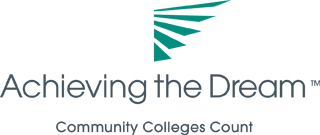Achieving the Dream – Project Success
Introduction
Achieving the Dream is a comprehensive non-governmental reform movement for student success. Together with our network of higher ed institutions, coaches and advisors, state policy teams, investors and partners, we are helping more than 4 million community college students have a better economic opportunity and achieve their dreams.
Measuring Student Success
Institutional Capacity Assessment Tool (ICAT)
Most efforts to improve community college student outcomes involve relatively small innovations or changes at the margins. After more than a decade of experience, Achieving the Dream (ATD) has learned that improving student success on a substantial scale requires colleges to engage in bold, holistic, sustainable institutional change. ATD’s Institutional Capacity Framework takes a comprehensive approach to directly addressing the emerging needs of the field to improve success for all students and to position colleges to undertake large-scale reforms such as pathways and successfully prepare for accreditation. From the beginning, our focus was designed to help colleges build capacity around five principles required for organizational change: (1) committed leadership; (2) a culture of evidence; (3) broad engagement; (4) systemic institutional improvement; and (5) equity. What we learned from that approach, the latest applied research, and the progress of more than 200 colleges in our national reform Network is enabling us to pave the way for the next generation of reform. Among the changes, the framework is designed for scale and pays more attention to teaching and learning and non-academic supports while keeping equity at the heart of the action. By identifying specific capacities, ATD is presenting a clear vision of what is required to create a student-centered institution.
These understandings inform the next generation of work at ATD and our approach to organizational change. The framework has at its core seven essential capacities that must be in place for colleges to create the student-focused culture that promotes student success. With the capacity framework as a guide, our approach integrates and aligns existing college success efforts such as redesigning developmental education, engaging faculty in student success, putting data and information in the hands of faculty and advisors, implementing pathways, preparing for accreditation, integrating planning and advising systems, and going the extra mile to address students’ financial challenges to help them continue their studies.
[ICAT results are attached for your convenience.]
Survey of Entering Student Engagement (SENSE)
The Survey of Entering Student Engagement (SENSE), a product and service of the Center for Community College Student Engagement, helps community colleges discover why some entering students persist and succeed and others do not.
Administered during the 4th and 5th weeks of the fall academic term, SENSE asks students to reflect on their earliest experiences (academic and services-related) with the college. SENSE serves as a complementary piece to the Community College Survey of Student Engagement (CCSSE), with a more narrowed focus on early student experiences.
(TMCC data for the SENSE is forthcoming)
Community College Survey of Student Engagement (CCSSE)
The Community College Survey of Student Engagement (CCSSE), a product and service of the Center for Community College Student Engagement, is a well-established tool that helps institutions focus on good educational practice and identify areas in which they can improve their programs and services for students.
Administered during the spring to mostly returning students, CCSSE asks about institutional practices and student behaviors that are highly correlated with student learning and retention. CCSSE serves as a complementary piece to the Survey of Entering Student Engagement (SENSE), with a more broad focus on the student experience.
Community College Faculty Survey of Student Engagement (CCFSSE)
Developed in response to demand from the community college field, the Community College Faculty Survey of Student Engagement (CCFSSE) elicits information from faculty about their perceptions regarding students’ educational experiences, their teaching practices, and the ways they spend their professional time—both in and out of the classroom.
Offered as a companion to the CCSSE student survey, CCFSSE is an online census survey that invites all faculty teaching CCSSE-survey eligible courses at participating colleges to contribute their front-line perspectives on student engagement. With a flat-rate fee regardless of college size, CCFSSE is an affordable way to create a faculty data set for comparison with student data. Perhaps more importantly, CCFSSE provides colleges with an effective way to invite faculty into a college-wide conversation about student engagement and success while spurring interest in their CCSSE survey results.
The CCSSE and CCFSSE will be administered spring semester, 2018.
Achieving Student Success
The more you know the less you’ll owe
Click here to learn more about managing your tuition, budget, and bills.
Turtle Mountain Community College’s Dreamkeepers emergency aid program provides assistance to students at risk of dropping out of college due to unexpected financial emergencies. This assistance was created to help students stay in college and meet their educational goals, ultimately, securing a better financial future. Click here for more information.
Angel Fund
This scholarship is funded by the Tom & Francis Leach Foundation for the purpose of assisting students in an emergency situation if they have no other financial resources to cover the cost of their emergency. For more information click here.
Paid Internships
Department Contact
| Ace Charette Director of Research, Assessment & Accreditation Phone: 701.477.7846 Ext: 2069 e-mail: acharette@tm.edu Office: Room 207B
|
Dr. Wanda Laducer Dean of Students Phone: 701.477.7875 Ext: 1156 e-mail: wladucer@tm.edu Office: Room 115E
|
Erik Kornkven English Instructor Phone: 701.477.7816 Ext: 2093 e-mail: ekornkven@tm.edu Office: Room 210N
|





